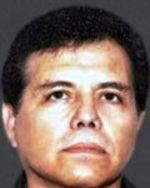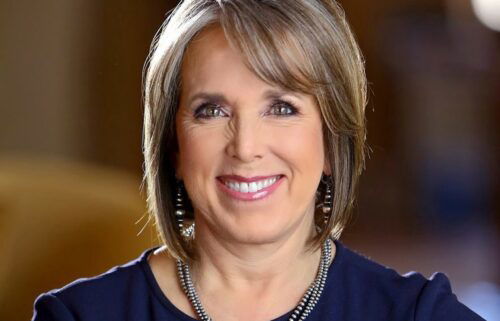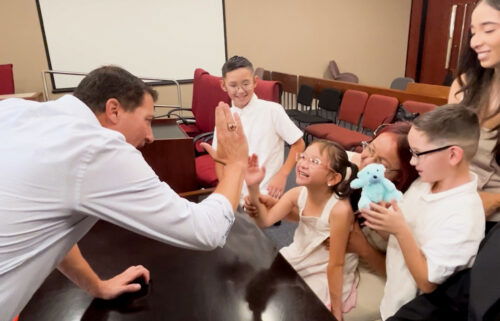Tulsa-area Army pilots to reunite with comrades 50 years after daring rescue in Vietnam War
Click here for updates on this story
TULSA, Okla. (Tulsa World) — The voice on the other end of the phone didn’t sound at first like anyone Jack Weaver knew.
But the question that his mystery caller posed instantly triggered a memory.
“He asked me ‘Do you remember where you were on July 23, 1970?’ And I said I was in Vietnam,” said Weaver.
“And he said, ‘Yeah — you were in the front seat of my helicopter, and we were flying an emergency rescue.’ ”
As they recounted this phone conversation — which marked their first time to speak in nearly 40 years — Weaver and his old Army buddy Jim Mitchske laughed out loud recently.
The call — from Mitschke, who lives in Owasso — came a few years ago, and it caught his former copilot completely by surprise.
Weaver, who lived in Arkansas at the time, now resides in Tulsa, and the two get together often.
But for Mitschke and Weaver, just finding each other again was not enough.
This week, they will renew their ties to the other airmen who shared the experience that day, July 23, 1970.
A reunion marking the 50th anniversary of the rescue operation will take place virtually Thursday via Zoom.
“I had to do some tracking down to find everyone,” said Mitschke, one of the coordinators.
He and Weaver, who were awarded Silver Stars for their daring rescue of two downed airmen, will be joined by the four other pilots who were part of the mission, including the pair who were rescued.
Most of the men haven’t seen each other since Vietnam, Mitschke said.
“Part of it is about closure,” he said. “When I got home from Vietnam, I was glad to be home. But I had this empty feeling.
“I’d just left all my friends. It’s like leaving a football game in the third quarter — just quitting and walking off the field.”
Shot down
The mission that would thrust Mitschke and Weaver into the role of rescuers began at Camp Evans near Quang Le in South Vietnam.
As pilots of a Cobra attack helicopter, their usual job was supporting the troops on the ground.
“Whatever it took, get the job done for our friends on the ground. That was everybody’s mindset,” Mitschke said.
And that was how the July 23 mission started out: flying to the aid of a team in Laos. The team, part of secret operations there, had been out several days near the Ho Chi Minh Trail and was now in a tight spot. North Vietnamese patrols were hot on their tails with dogs.
Mitschke, a captain and platoon leader with his 101st Airborne rocket artillery battery, would pilot one Cobra chopper, with Weaver as copilot.
They would be joined by another Cobra along with an OV-10 observation plane.
Each of the three aircraft carried two men. In the other helicopter was Steve Wood, section lead for the mission, and his copilot, Ron Knapp.
The Cobras were well-equipped for this kind of action, armed with machine guns, aerial rockets and a grenade launcher.
When they arrived at the ground team’s location, they went to work, blasting away.
The effort worked to free up the team so it could continue its secret operation.
“Up to that point, the mission was a piece of cake,” Mitschke said. “Nothing unusual from any other.”
But in making one last pass before heading home, he glanced over at Wood’s helicopter. And what he saw alarmed him: “Flames were shooting from the engine all the way to the rear.”
The helicopter, he realized, had taken a direct hit from one of the enemy’s deadly .51-caliber heavy machine guns.
Unable to stay airborne, it was forced to set down in a nearby clearing.
As for what to do next, Mitschke didn’t have time to think about it.
With enemy troops converging, there was no time to wait for support: It was on him and Weaver to rescue their comrades.
And they would have to do it without any ammunition. They had expended it all.
“We were naked,” Mitschke said.
What followed were several intense minutes.
Directing the men by radio to make for a nearby ridgeline, Mitschke and Weaver attempted to meet them there.
The closer they got, the heavier the small arms fire grew. Their helicopter absorbed hit after hit.
Weaver, itching to do something, used the only weapon available. Opening the front canopy, he began firing at the enemy with his .38-caliber pistol.
It was a chaotic scene, Mitschke recalled.
“The noise of all the firing, the rounds hitting the aircraft and smells are hard to forget,” he said.
“Of course, you’re scared. You’re sweating bullets.”
The observation plane had circled back and was able to provide some cover fire, allowing Mitschke to move in close to Wood and Knapp.
Because the Cobra had space for only its pilot and copilot, the downed airmen had no choice: They had to ride on the outside of the aircraft.
This meant sitting on the ammo bay doors, a precarious perch that left their legs dangling in the air.
By now, enemy troops were closing in.
With Wood and Knapp now aboard and able to help return fire, Mitschke lifted off.
However, nothing, it seemed, was going to be simple. Mitschke recalls his chagrin at seeing his low fuel light suddenly flash on.
It meant, he figured, they had “about 20 minutes of fuel for a 30-minute flight back.”
But thanks to his piloting skills, he was able to adjust and manage. He got them home — on fumes, but in one piece.
‘Figured it was over’
Wood, who lives in Seattle, has thought about the events of July 23, 1970, often over the years.
“We all had many close calls, but this was the one where I figured it was over,” he said.
Wood can’t emphasize enough, he said, “how big a risk Jim and Jack took in picking us up. The location had many heavy anti-aircraft weapons and soldiers. It’s amazing Jim was able to get in and back out in one piece.”
Their Silver Stars were “well-earned,” he added.
Wood, who hadn’t spoken to Mitchske in almost 50 years, “was very surprised and elated” when he reached out to him.
Enthusiastic at the idea of a reunion, it was Wood who suggested using Zoom, with which he had prior experience.
“We are all getting old and will start losing old friends rapidly, so now is the time to do this,” he said.
Besides those involved in the July 23 rescue, the virtual reunion will include a few veterans involved in similar operations — rescues in which Cobra attack helicopters extracted downed airmen.
Mitschke said coming home from Vietnam, troops didn’t fully understand what they were leaving behind.
The lack of support stateside, where the war had become extremely unpopular, served only to highlight the bond they’d shared with their comrades.
They missed that bond, he said.
“We’d been together for two years, then when we got back, it was over. We went our own ways,” Mitschke said.
The desire for that old camaraderie is one reason Mitschke and Weaver regularly get together for breakfast with other Tulsa-area military helicopter pilots.
But this week’s virtual reunion will be special. It commemorates an experience they shared with only four other men.
Mitschke hopes it’s the start of something — a regular reunion, perhaps, that can eventually be done in person.
“In Vietnam, when you were thrown together in combat, you formed certain bonds. And you can’t duplicate it anyplace else,” Mitschke said.
“We had each other’s backs.”
Please note: This content carries a strict local market embargo. If you share the same market as the contributor of this article, you may not use it on any platform.




